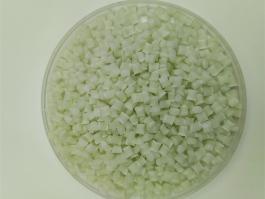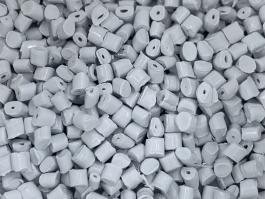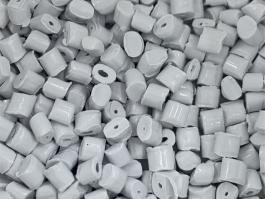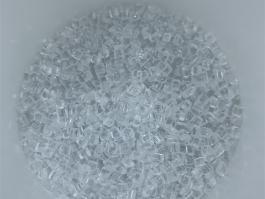High Heat PC/ABS Mixture with Good Flowability And Excellent Impact Resistance
Dongguan Forever Co.,Ltd is the manufacture of the China origin cheap UV stablized PC polycarbonate Granules Polymer Resin
HC1204HF-XH is high-temperature PC/ABS blend with superior impact resistance and excellent flow characteristics, suitable for use in medical devices and pharmaceutical applications. Compliant with healthcare management standards and biocompatible according to ISO10993 or USP Class VI requirements.
General | ||||
Form |
| |||
Feature |
|
| ||
Usage |
| Nuclear Power |
| |
Physical | Nominal Value | Test Method | ||
Density / Specific Gravity | 1.15 g/cm³ | |||
Melt Mass-Flow Rate, MFR(260 °C;5 kg) | 24 g/10min | ASTM D1238 | ||
Melt Volume-Flow Rate, MVR | ISO 1133 | |||
260 °C;2.16 kg | 8.00 cm³/10 min | |||
260 °C;5 kg | 22 cm³/10 min | |||
Molding Shrinkage, Flow, Tensile Bar | 0.50 - 0.70 % | Internal Method | ||
Molding Shrinkage, Flow(3.2 mm) | 0.50 - 0.70 % | Internal Method | ||
Water Absorption, Saturation(23 °C) | 0.60 % | ISO 62 | ||
Water Absorption, Equilibrium(50% RH;23 °C) | 0.20 % | ISO 62 | ||
Rockwell Hardness, R-Scale | 115 | ISO 2039-2 | ||
Ball Indentation Hardness(H 358/30) | 96.0 MPa | ISO 2039-1 | ||
Mechanical | Nominal Value | Test Method | ||
Tensile Modulus | ||||
5 mm/min | 2270 MPa | ASTM D638 | ||
2400 MPa | ISO 527-2/1 | |||
Tensile Strength, Yield | ||||
50 mm/min;Type I | 57.0 MPa | ASTM D638 | ||
55.0 MPa | ||||
Tensile Strength, Break | ||||
50 mm/min;Type I | 47.0 MPa | ASTM D638 | ||
45.0 MPa | ||||
Tensile Elongation, Yield | ||
50 mm/min;Type I 5.0 % | ASTM D638 | |
5.0 % | ISO 527-2/5 | |
4.0 % | ISO 527-2/50 | |
Tensile Elongation, Break | ||
50 mm/min;Type I 100 % | ASTM D638 | |
100 % | ISO 527-2/5 | |
> 50 % | ISO 527-2/50 | |
Flexural Modulus | ||
1.3 mm/min;50 mm;Span 2300 MPa | ASTM D790 | |
2 mm/min 2300 MPa | ISO 178 | |
Flexural Stress, at Yield(2 mm/min) 80.0 MPa | ISO 178 | |
Flexural Stress, Yield(1.3 mm/min;50 mm;Span) 88.0 MPa | ASTM D790 | |
Taber Abrasion Resistance(1.0e+3 Cycles;1.0e+3 g;CS-1763.0 mg Wheel) | Internal Method | |
C harpy Notched Impact Strength -30 °C;80 23 °C;80 | 30 kJ/m² 50 kJ/m² | ISO 179 1eA |
Notched Izod Impact | ||
-30 °C 480 J/m | ASTM D256 | |
23 °C 580 J/m | ASTM D256 | |
-30 °C;80*10*3 mm 30 kJ/m² | ISO 180/1A | |
23 °C;80*10*3 mm 50 kJ/m² | ISO 180/1A | |
Instrumented Dart Impact, Total Energy(23 °C) 54.0 J | ASTM D3763 | |
Thermal | Nominal Value | Test Method |
Heat Deflection Temperature, Unannealed | ||
0.45 MPa;120*10*4 mm;4 mm;100 mm;Span | 122 °C | ISO 75-2/Be |
1.8 MPa;3.2 mm | 112 °C | ASTM D648 |
1.8 MPa;120*10*4 mm;4 mm;100 mm;Span | 102 °C | ISO 75-2/Ae |
Vicat Softening Temperature | ||
50 °C/h;50 N;Rate A;Loading 2 | 130 °C 126 °C 128 °C | ASTM D1525 ISO 306/B50 ISO 306/B120 |
Ball Pressure Test(123 - 127 °C) | Pass | IEC 60695-10-2 |
CLTE, Flow | ||
-40 - 40 °C | 7.2E-5 cm/cm/°C | ASTM E831 |
23 - 60 °C | 8.0E-5 cm/cm/°C | ISO 11359-2 |
CLTE, Transverse | ||
-40 - 40 °C | 7.2E-5 cm/cm/°C | ASTM E831 |
23 - 60 °C | 8.0E-5 cm/cm/°C | ISO 11359-2 |
Thermal Conductivity | 0.20 W/m-K | ISO 8302 |
RTI Elec | 105 °C | UL 746 |
RTI Imp | 80.0 °C | UL 746 |
RTI Str | 105 °C | UL 746 |
Flame Rating 1.2 mm 3 mm | HB HB | UL 94 |
Glow Wire Flammability Index(1 mm) | 650 °C | IEC 60695-2-12 |
Oxygen Index | 23 % | ISO 4589-2 |
Electrical | Nominal Value | Test Method |
Surface Resistivity | > 1.0E+15 Ohms | IEC 60093 |
Volume Resistivity | > 1.0E+15 Ohms ·cm | IEC 60093 |
Electric Strength, in Oil 0.8 mm 1.6 mm 3.2 mm | 35 kV/mm 25 kV/mm 17 kV/mm | IEC 60243-1 |
Relative Permittivity 50 Hz 60 Hz 1.0e+6 Hz | 2.80 2.80 2.70 | IEC 60250 |
Dissipation Factor 50 Hz 60 Hz 1.0e+6 Hz | 2.0E-3 2.0E-3 7.0E-3 | IEC 60250 |
Comparative Tracking Index | 250 V | IEC 60112 |
Processing | Nominal Value | |
Drying Temperature<Injection> | 100 - 110 °C | |
Drying Time<Injection> | 2.0 - 4.0 hr | |
Suggested Max Moisture<Injection> | 0.020 % | |
Hopper Temperature<Injection> | 60 - 80 °C | |
Rear Temperature<Injection> | 230 - 260 °C | |
Middle Temperature<injection> | 250 - 290 °C | |
Front Temperature<Injection> | 250 - 290 °C | |
Nozzle Temperature<Injection> | 240 - 280 °C | |
Processing Temp, Melt<Injection> | 260 - 290 °C | |
Mold Temperature<Injection> | 60 - 90 °C |


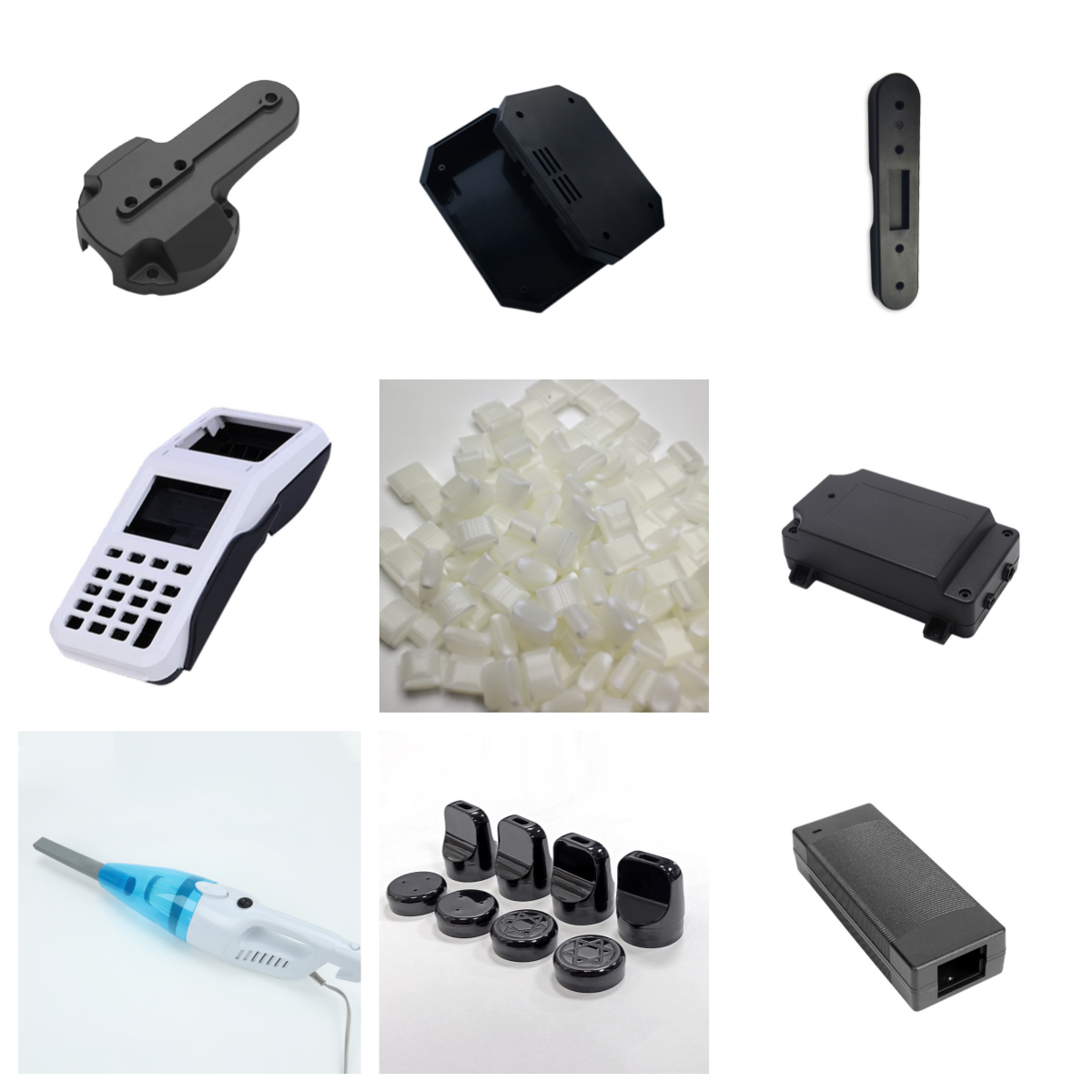
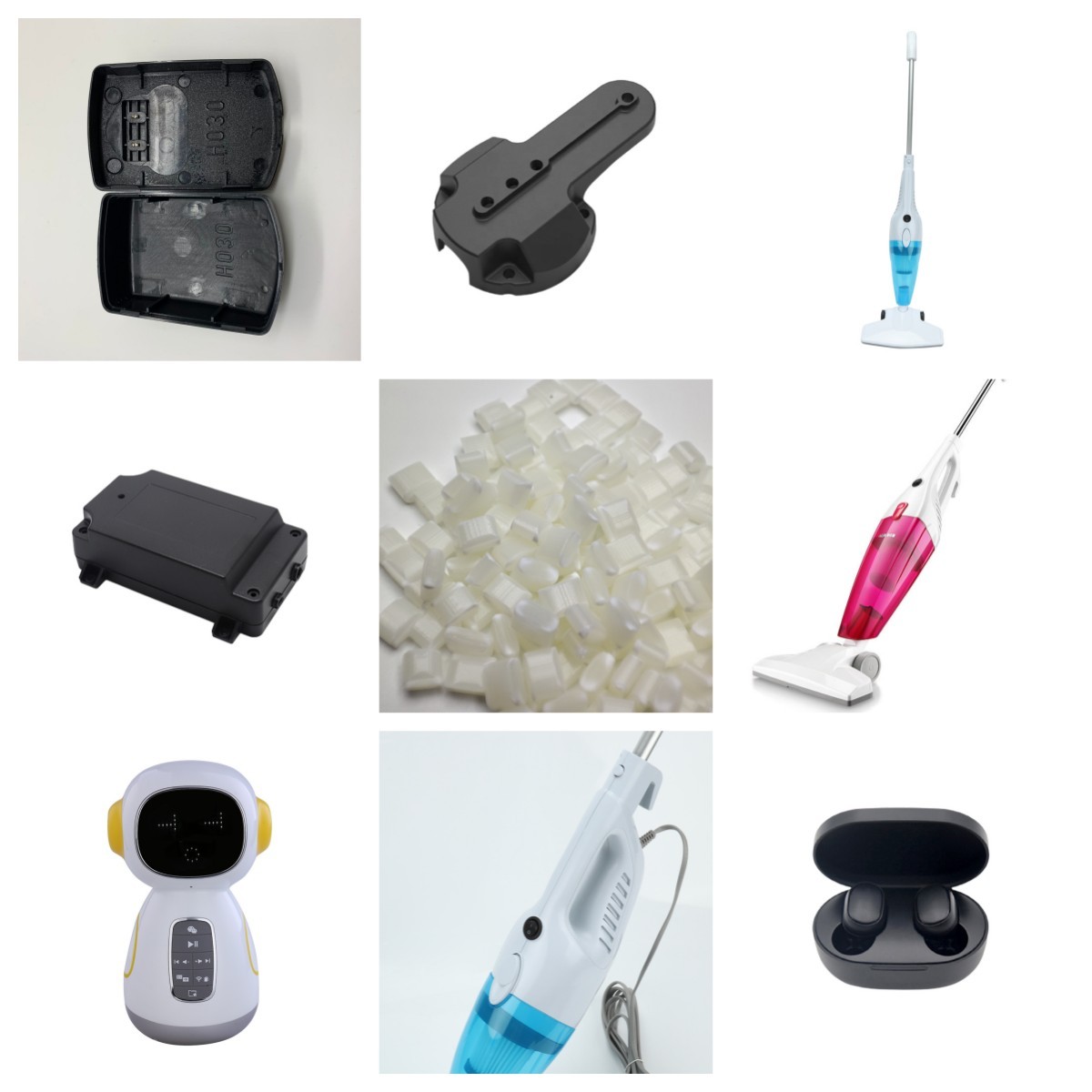
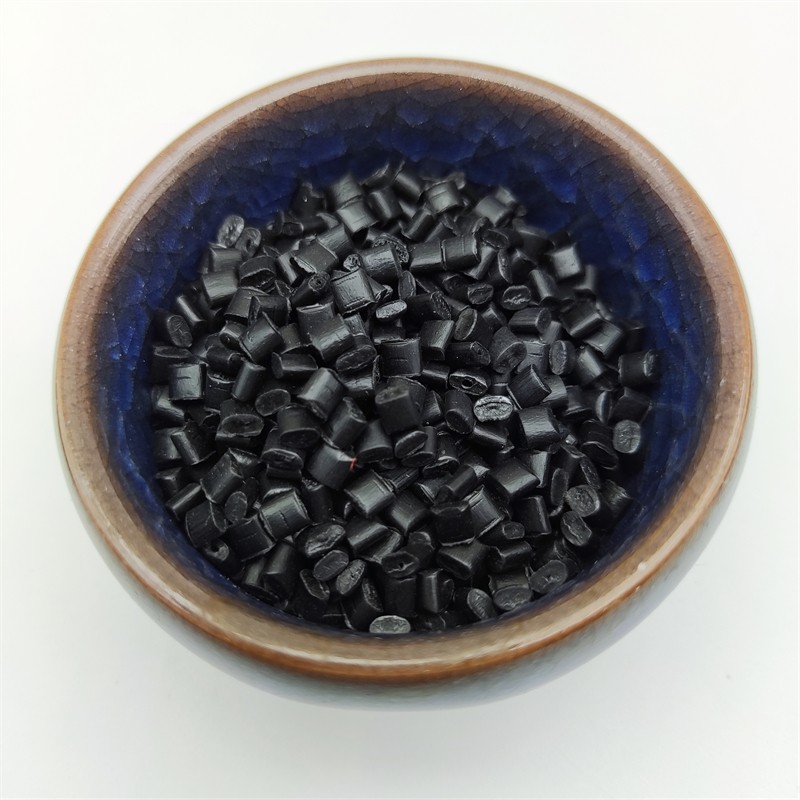

 Resin Pellets
Resin Pellets